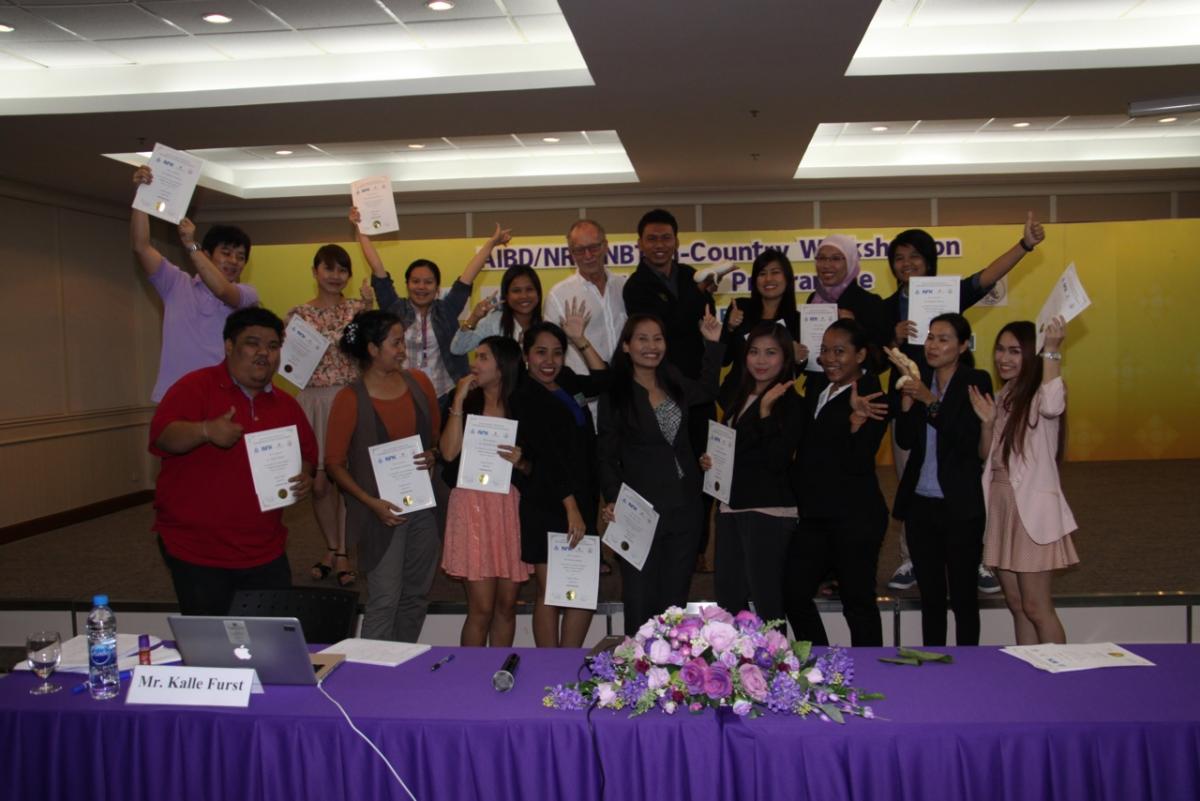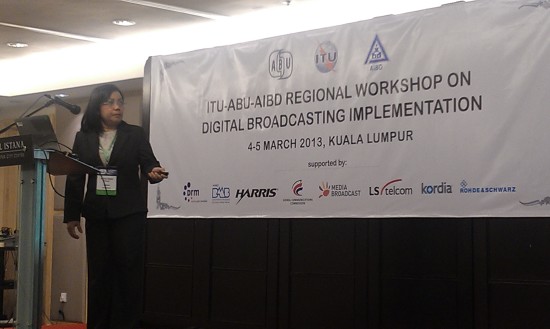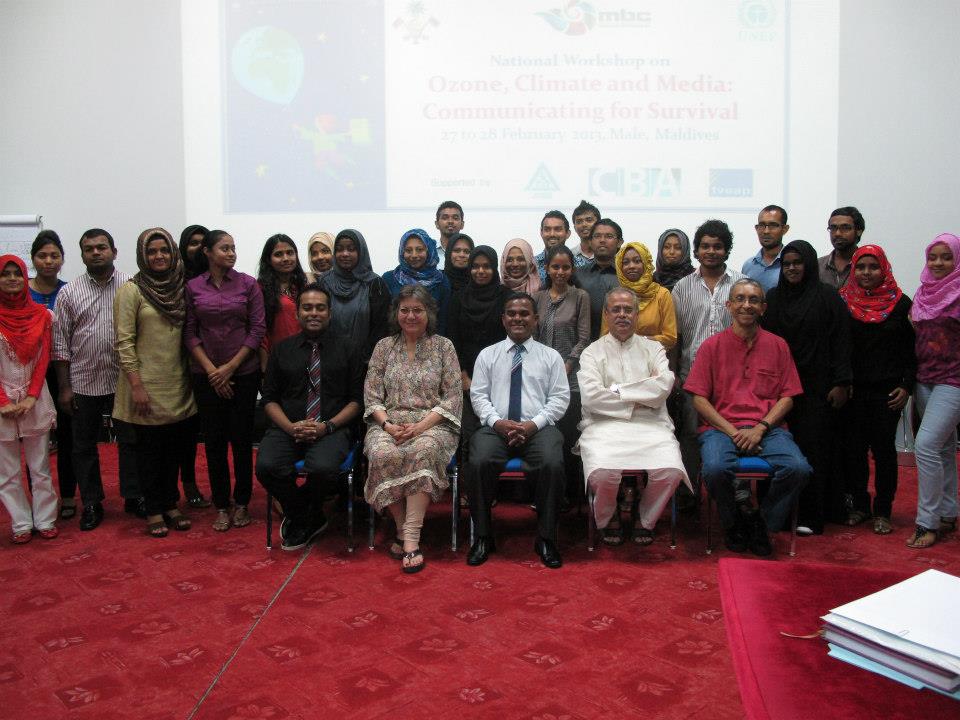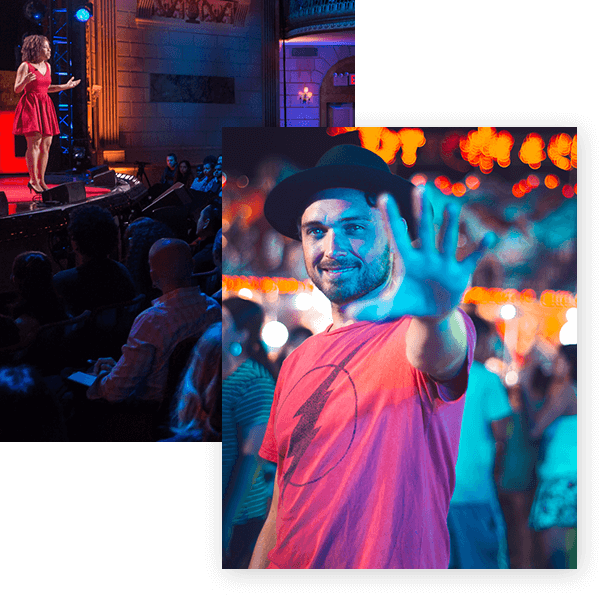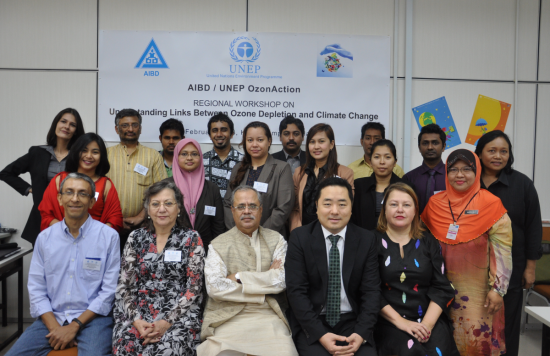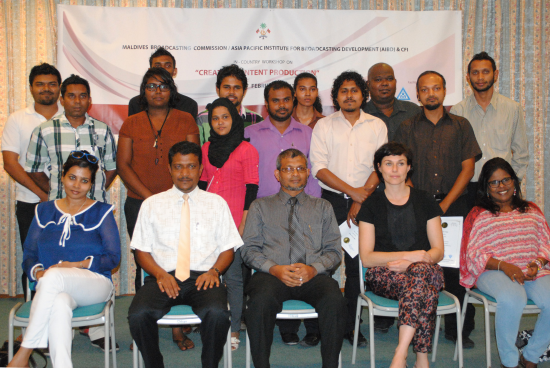AIBD together with the National Broadcasting Services of Thailand (NBT) oganised an in-country workshop on Creating Awareness on Green Living from 29 April to 02 May 2013 to train producers to deliver more quality content programming to create awareness on environmental degradation and the impact of climate change to communities through family-oriented programmes.

AIBD together with the National Broadcasting Services of Thailand (NBT) oganised an in-country workshop on Creating Awareness on Green Living from 29 April to 02 May 2013 to train producers to deliver more quality content programming to create awareness on environmental degradation and the impact of climate change to communities through family-oriented programmes.
Twenty one participants who were reporters, producers, camerapersons, editors and presenters from NBT’s regional stations in various provinces in Thailand and from the Royal Thai Army Television & Radio Channel 5 and Thai Public Broadcasting Services attended the workshop.
The four-day workshop was designed for mid-career professionals, and focused on enhancing awareness on environmental issues as well as sharpening their story-telling skills on such topics that are of public interest and the concept of green living. The content included a mix of presentations, discussions, interactive learning, screening of videos on good practices and a field activity.

The sessions focussed on environmental challenges faced by Asian countries, the role of broadcast media in communicating for green living, telling stories to save the planet in engaging audiences in non-technical ways, connecting the global with local green cities. Also, how to cover many-faceted, complex issues on climate change, recognising that more than half of humanity lives in urban areas the need to make the cities more habitable and how green living can help reduce carbon emissions and help mitigate climate impacts in the future.

The practical work was collectively devoted to a field activity. The participants were encouraged to conceptualize positive stories wherever possible, telling viewers what they can do in everyday lives to make their lives greener and healthier. They identified local topics and issues related to green living, planned how to video record and edit a three minute short story.

The workshop was conducted by Mr Nalaka Gunawardene, CEO of TVE Asia-Pacific in Sri Lanka. He is an experienced writer for science programmes, producing programmes for television on science, technology, environment, public health, agriculture and ICT related topics and issues. He was supported by two senior local resource persons from NBT. They were Ms Sumonpan Kosonsiriset, Director – Program Production Division, and Mr Surasak Hunsachaleekon, Senior Program Officer from National Broadcasting Services of Thailand.
AIBD/NBT In-country workshop on Creating Awareness on Green Living
AIBD together with the National Broadcasting Services of Thailand (NBT) oganised an in-country workshop on Creating Awareness on Green Living from 29 April to 02 May 2013 to train producers to deliver more quality content programming to create awareness on environmental degradation and the impact of climate change to communities through family-oriented programmes.
AIBD/NRK/VTV In-Country Workshop on Children’s TV Programme
From 18 to 22 March 2013, AIBD organised an in-country workshop on Children's TV Programme hosted by Vietnam Television (VTV) in Hanoi. This activity aimed at providing the participants an introduction to children's perception of media, as well as an introduction of working methods to make them excellent media-workers with and for children.
AIBD/NRK/NBT In-Country Workshop on Children’s TV Programme
From 4 to 8 March 2013, AIBD organised a workshop on Children's TV Programme for NBT in Bangkok. 19 participants from various regional stations in Thailand were split into three groups with the task of drafting three programmes for children: drama, documentaries and game shows.
ITU-ABU-AIBD Regional Workshop on Digital Broadcasting Implementation
The International Telecommunication Union (ITU), the Asia-Pacific Broadcasting Union (ABU), and the Asia-Pacific Institute for Broadcasting Development (AIBD) jointly organized two day regional workshop on “Digital Broadcasting Implementation” On 4-5 March 2013 in Kuala Lumpur, Malaysia.
Maldives engages Media for HCFC phase-out
The government of the Maldives plans to ban the import of HCFC-based equipment from 1 July 2014. Minister of State for Environment and Energy, Mr. Abdul Matheen Mohamed, announced this at the closing ceremony of a national media training workshop on ozone and climate held in Maldivian capital Malé on 28 February 2013.
Broadcasters Study Ozone and Climate Issues
A UNEP-AIBD workshop trains TV producers from the Asia-Pacific to spread awareness about ozone depletion and climate change. “Why don’t the greenhouse gases escape through the hole in the ozone layer?” asks an average TV viewer in a cartoon that first appeared in a US newspaper a few years ago. That question illustrates the confusion in the minds of many non-specialists across the world.
AIBD, UNEP OzonAction Regional Workshop on Understanding Links Between Ozone Depletion and Climate Change
The 3-day regional media workshop from 20-22 February 2013 in Kuala Lumpur, Malaysia engages a selected group of broadcast television professionals from the Asia Pacific region on the current status and challenges in ozone layer protection and its links to combating climate change.
AIBD/CFI/MBC In-country Workshop on Creative Content Production
The In-country workshop on creative content production organized by AIBD with the support of CFI was successfully held from 3 to 7 February 2013 in Male, Maldives. Maldives Broadcasting Commission (MBC) hosted the workshop.
AIBD / PRASAR BHARATHI Sub-Regional Workshop on Digital Radio Transmission
This international level workshop was conducted from 3 -11 Dec 2012 at the All India Radio-Staff Training Institute (Technical) complex in New Delhi. It was attended by 14 broadcast engineers and technical personnel from Bhutan, India, Malaysia, Maldives, Mozambique, Nepal, Nigeria and Thailand.
AIBD/VTV In-Country Workshop on HD Camera/Studio Lighting
The In-Country Workshop organized by AIBD for Vietnam Television (VTV) was held in Hanoi, Vietnam on 3-7 December 2012. The focus of the activity was to train VTV camera people on lighting techniques for HD cameras specific to indoor studio operations, in particular for news and game shows, and outdoor program production, in particular for news gathering and live events.



